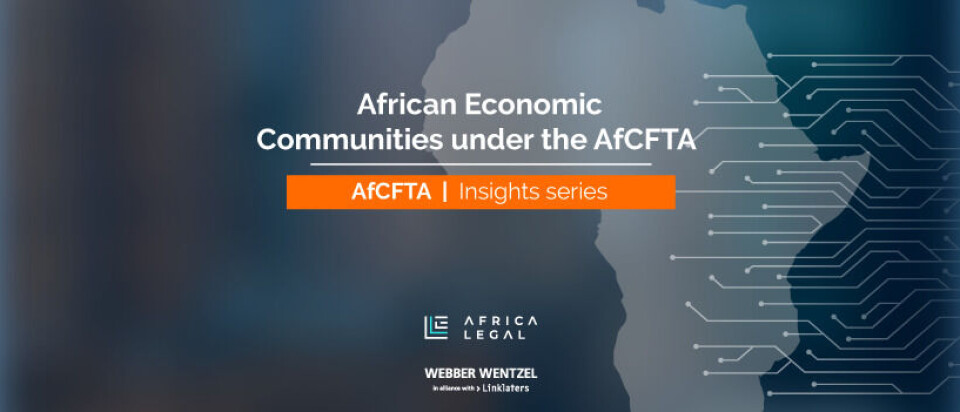Copyright : Re-publication of this article is authorised only in the following circumstances; the writer and Africa Legal are both recognised as the author and the website address www.africa-legal.com and original article link are back linked. Re-publication without both must be preauthorised by contacting editor@africa-legal.com
Understanding Africa’s Trade Web

Africa is home to the oldest customs union in the world—the Southern African Customs Union (SACU)—founded at the start of the 20th century, boosting trade between Botswana, Eswatini, Lesotho, Namibia and South Africa.
While it is not recognised as a regional economic community (REC) in the African Continental Free Trade (AfCFTA) Area agreement, it did serve as an example for other African countries to pursue economic development through a regional bloc. Today there are eight REC’s that will act as building blocks for AfCFTA, the oldest among them being the Economic Community of West African States, which was founded in 1975 and includes Nigeria, Ivory Coast and Senegal among its members. The most recent addition to the continent’s RECs is the East African Community (EAC), which was re-established in 1999 and is chiefly dominated by Kenya (making up 65% of intra-EAC exports).
The largest economic community by volume of intra-REC trade is the Southern African Development Community (SADC), followed by the Community of Sahel-Saharan States (CEN-SAD) and then ECOWAS. The Economic Community of Central African States (ECCAS) accounts for the lowest amount of intra-REC trade among the eight blocs recognised by AfCFTA.
While the free trade area is designed to eventually supersede all of the RECs, in the near-term they will serve as stepping stones towards a more integrated Africa. For instance, if a policy was a success in ECOWAS, the idea would likely be replicated across the continent.
Yet while the blocs will co-exist for now, where rules in a particular REC clash with the AfCFTA agreement, the latter will generally take precedence. There are some exceptions, however. SADC, for instance, is already more deeply integrated than the continent as a whole, meaning its rules can be maintained—it doesn’t have to immediately integrate to that same level with other economic communities or non-SADC members.
Integrating Africa as a whole beyond existing regional trade agreements is likely to prove challenging. Some countries might actually benefit from less integration because they are shielded from more competitive companies elsewhere, so there may be some pushback from smaller countries that have been successful in a particular REC but would now have to compete with bigger countries such as South Africa. South Africa, by contrast, with its large manufacturing base would likely stand to benefit from a more open Africa; instead it is more likely to push back on issues such as migration or other areas that will eventually be on the table.
DOWNLOAD THE AFRICAN REC INFOGRAPHIC HERE.
To join Africa Legal's mailing list please click here

